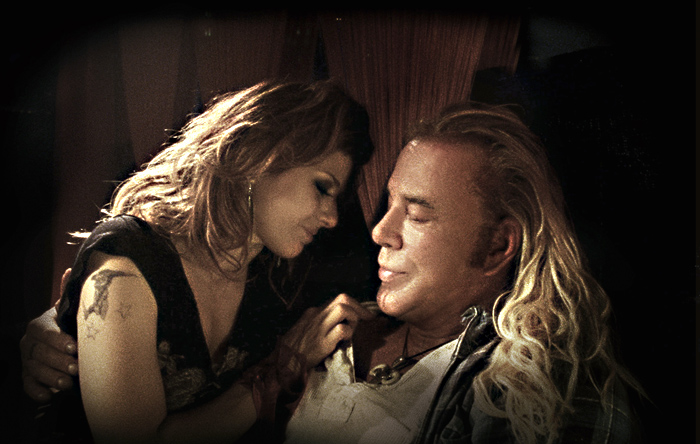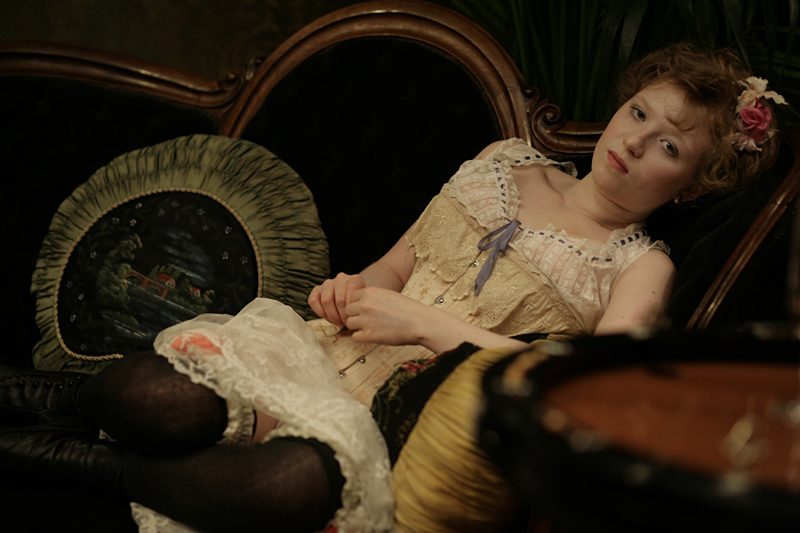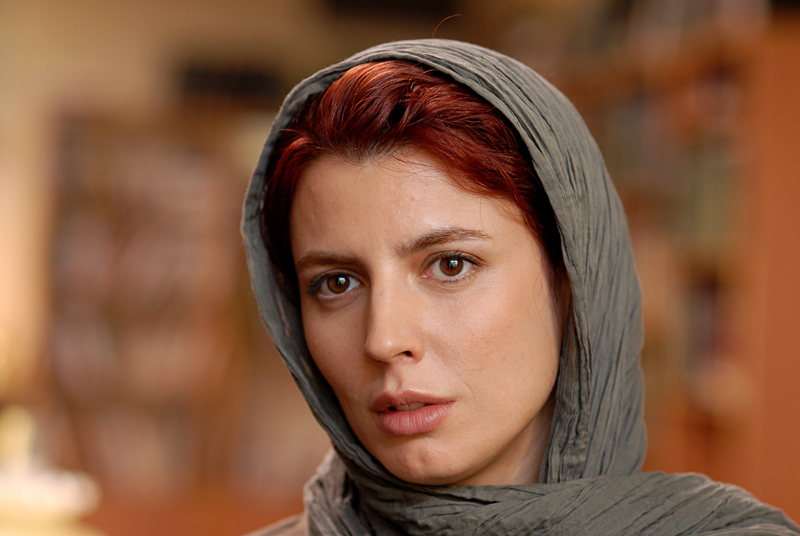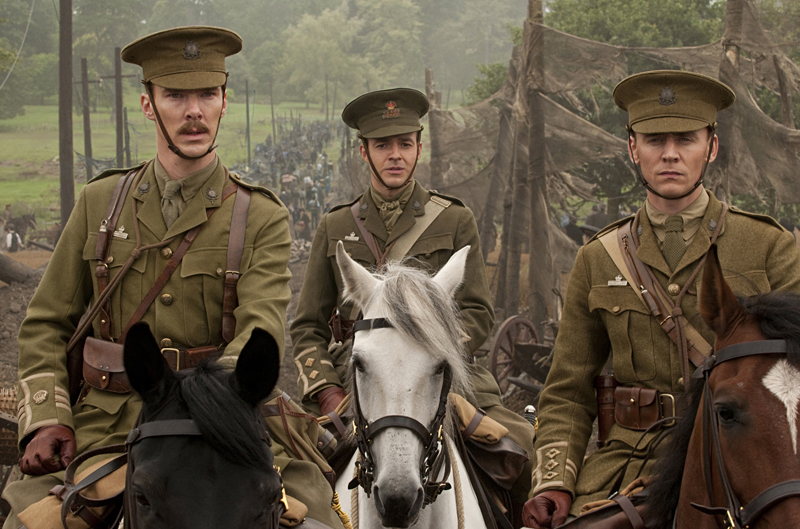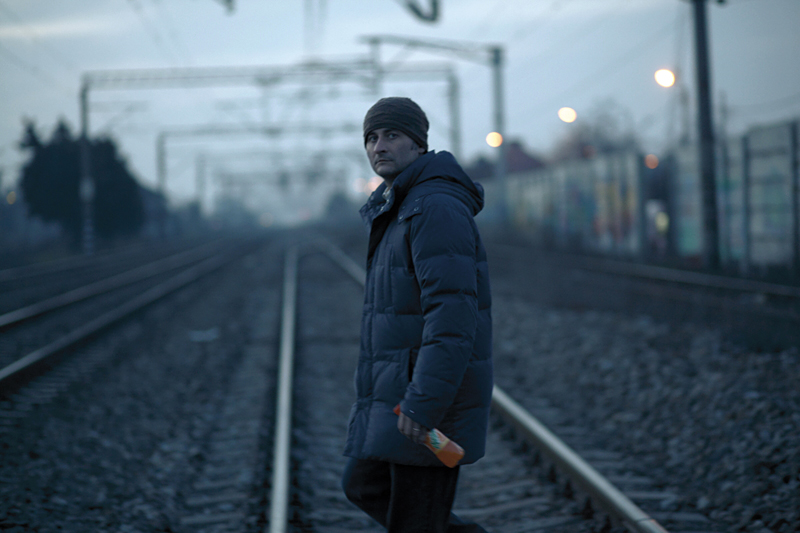The Wrestler may be plenty visceral, but it’s no more a sports movie than professional wrestling is a competitive sport. Chronic over-reacher Darren Aronofsky’s relatively unpretentious follow-up to the ridiculous debacle that was The Fountain is all about showbiz. It’s also a canny example. You want to make a comeback saga, you get a washed-up star—in this case, Mickey Rourke, for whom Aronofsky and screenwriter Robert Siegel conceived the movie.
The old “new De Niro” of the Reagan era and a famous flame-out well before Bill Clinton took office, the volatile Rourke gives a career performance as Randy “The Ram” Robinson—an amiably broken-down wrestler who was himself a star of the 1980s. A ravaged steroid hulk with a stringy blond mane and a head full of Mötley Crüe, the Ram is actually something of a sweetie. He needs glasses to read and enjoys playing Nintendo with the neighborhood kids. Rourke is scarcely more recognizable as this over-the-hill palooka than as the hulking cyber-enhanced mutant shtarke he played in Sin City, but there’s still the shadow of his soft-lipped, baby-face smile.
Present in every scene, if not each shot, Rourke gives a tremendously physical performance that The Wrestler essentially exists to document. The movie has a deliberately cruddy, lurid look; it’s set entirely in Nowhere, New Jersey, and could have been shot by the Dardenne brothers. The camera hastens after the Ram, scampers back as he advances, or perches on the hood of his car as he drives through the night to his humble trailer (only to discover he’s been locked out). Aronofsky dotes on the details of the Ram’s routine (securing meds, getting a perm, visiting the tanning parlor), especially his preparations for a bout. A true professional, Randy carefully works out a routine with his adversary, concealing razors with which to cut himself and share some blood with his fans.
Rourke too is a pro, and The Wrestler, which won the Gold Lion at Venice and closed the New York Film Festival, has its share of action. The most gruesome bout is one in which a younger, more degenerate fighter—cast as a villainous “heel” rather than a sympathetic “face”—introduces the Ram to the strategic use of a staple gun. The crowd loves it, appreciatively chanting, “You sick fuck, you sick fuck,” when Randy’s opponent staples a $20 bill to his forehead, just for starters. It’s this bloody mess, 20 minutes into the movie, that triggers the Ram’s heart attack, landing him in the hospital with a doctor’s warning that it’s past time he retired.
It seems likely that the Harvard-educated Aronofsky would be familiar with Roland Barthes’ famous essay on the semiotics of wrestling that, among other things, discusses this “spectacle of excess” as a dramatic ritual of suffering and humiliation: “It is as if the wrestler is crucified in broad daylight and in the sight of all.” In any case, The Wrestler‘s vivid concern with the mortification of the flesh is given a spiritual dimension by the veteran stripper who goes by the nom de pole Cassidy (Marisa Tomei, Hollywood’s go-to gal for an Oscar-quality lap-dance).
Cassidy’s sleazy workplace is the female equivalent of the Ram’s blood-slimed wrestling arena, not to mention a place for the addled wrestler to exercise some misplaced gallantry. Hoping to cheer up her favorite customer, Cassidy advises him to see The Passion of the Christ: “It’s amazing. They throw everything at him—rocks, stones, arrows!” (“Tough dude,” the wrestler mumbles, missing Cassidy’s joke that he is the Sacrificial Ram. She, of course, is his Mary Magdalene.) A touching scene in which these two cartoon gladiators meet after-hours on a Saturday afternoon, wearing their normal outfits, is only topped by the day in which the Ram tries to go straight, taking a job at the deli counter in a neighborhood supermarket. He even seems to be enjoying himself. But however you slice it, it’s all about the meat, and the attempt ends with a debacle worthy of his “Ram Jam” ring antics.
Not nearly as successful is the extended subplot of the Ram’s attempted reconciliation with his abandoned, fabulously hostile and disapproving daughter (Evan Rachel Wood). Rourke’s character may be larger than the movie, but this time the Ram gets ground up in the mechanics of the plot.
